The Wandering Dulcimer
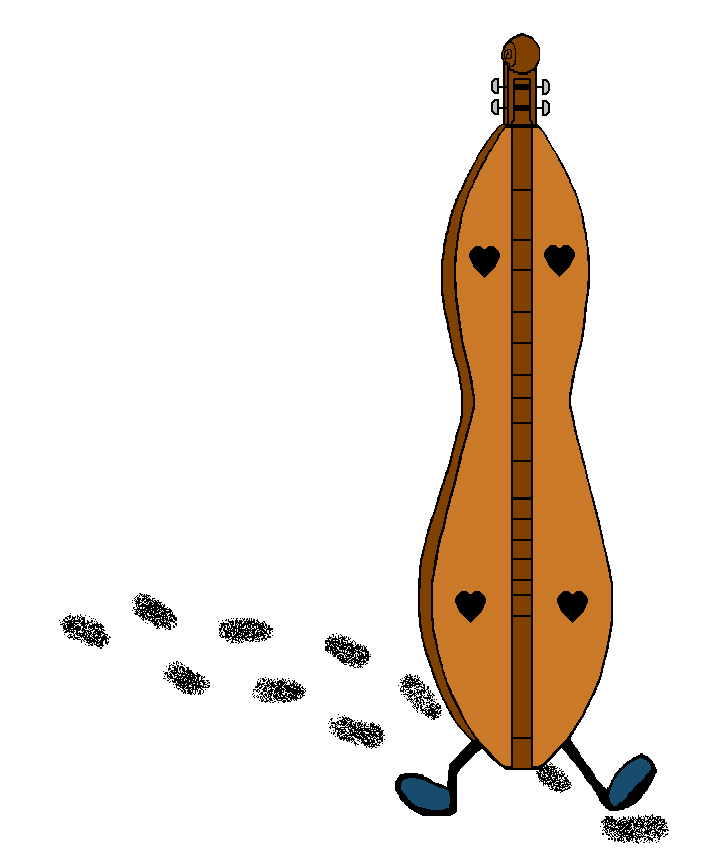
What is a “Wandering Dulcimer?”
Well, the dulcimer in question is the Appalachian or mountain dulcimer. A truly American folk instrument, the dulcimer and its predecessors did a lot of wandering as they traveled with the early settlers of our country. The name as it applies to me has to do with my not having a physical, retail location (aside from my home!). My dulcimer and I tend to travel as needed for various performances, workshops and festivals. While my home base is Southern NH, you are apt to find me anywhere around New England, enjoying the music and the company of musicians.
2021 Interview on Mr. Radio
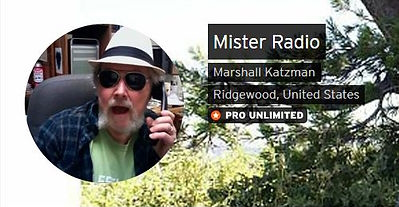
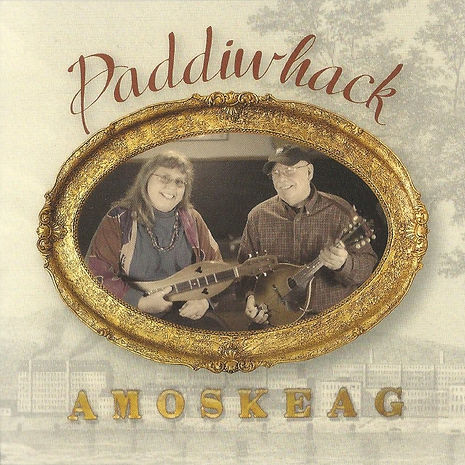
Paddiwhack
Paddiwhack is Sandy Lafleur and Bill Perry. The title track of our CD, Amoskeag, is an original tune I wrote as a tribute to those who worked the Amoskeag Mills in Manchester, NH and whomever took the time to paint over the raised lettering on each stair riser of the old mill building in gold paint. The first time the tune, a waltz, was played was at the Mill City Contra Dance that used to be held in that building.
Samples from Amoskeag
01 – Barlow Knife; Cripple Creek
03 – Lord Inchiquin
07 – Rowan Tree; Scotland the Brave
15 – Amoskeag Waltz
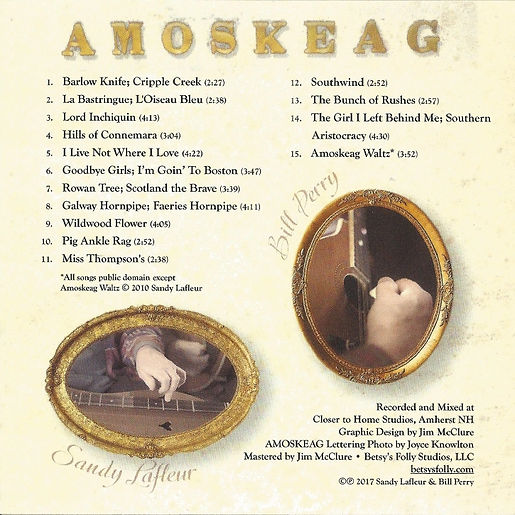
Sandy Lafleur
I have been playing the Appalachian dulcimer for over 30 years. While the guitar was my first instrument, the dulcimer, with its haunting drones, captivated me the first time I heard it. Deceptively simple to play, an easy folk song melody can be coaxed from its strings by a beginner in just a few minutes. Yet there always seem to be new techniques, various tunings and an ever growing number of melodies from all over the world to explore on this instrument.
I enjoy performing and teaching out of my home and at festivals (and on Zoom!) and am proud to be a distributor for McSpadden dulcimers.
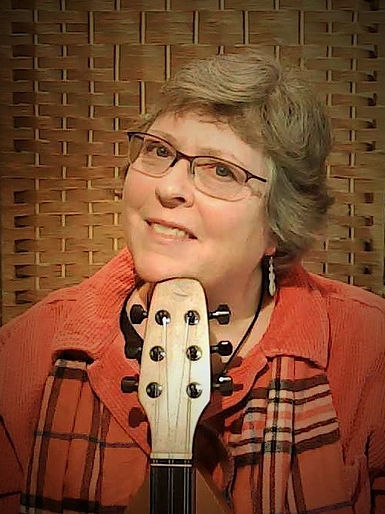
Dulcimer Workshops
Dulcimer Festivals are such special events as they bring players of all abilities together. A good festival has something for everyone. To me this means a nice mix of repertoire and technique workshops at a variety of playing levels led by instructors that really connect with workshop participants.
Some of the repertoire workshops I have led in the past include: Shape Note hymns, Breton, Welsh, and Manx tunes, tunes from the fife and drum corps tradition, jigs, waltzes, and hornpipes.
Technique workshops, while always illustrating the technique through the playing of a tune, may include the use of the capo, dynamic chordal back-up, beginning fingerpicking, the one and a half fret, DAC, DGD and EAA tunings, and left hand techniques such as hammer-ons, pull-offs and slides.
Leading workshops is one of my favorite things and judging by feedback from workshop participants, I am an engaging and effective teacher. If you are a festival organizer, please contact me about workshops you would like me to lead at your festival!!
What they say…
“Sandy is extremely knowledgeable about all things pertaining to the dulcimer and music. She has a relaxed, approachable, and fun teaching style which puts learners at ease.”
-OLLI Student
“I took “Unusual Christmas Melodies” and “Tunes with a Story Behind Them” with you and totally enjoyed both of them. You bring a great exuberance to the classroom making for a relaxed and enjoyable atmosphere.”
-PB from NY
I wanted to take this opportunity to thank you again for the kindness and generosity you showed my son Daniel. This was his first experience at a festival of this kind and with the dulcimer community as a whole, and he had an absolutely wonderful time.”
-BG from CT
“Just wanted to personally thank you for sharing your knowledge and love of the dulcimer last Saturday in St. Johnsbury. There were some great technical tips which I will certainly keep handy in my ‘bag of tools’!”
-GB from Quebec
“Many of you know Sandy as a delightful and insightful teacher who delivers the goods with clarity and humor.”
-Festival Organizer
“A rare gem. She felt like a longtime friend right from the start. Will keep an eye out for any additional classes she presents and sign up! Perfect instructor for both novice and more experienced dulcimer students.”
-OLLI Student
“Sandy Lafleur was the topic of conversation at lunch – beginning students thought she was a terrific teacher!”
-Festival Attendee (Intermediate/Advanced)
“‘Playing Expressively’ was helpful. “Different Ways to Play in A” – Sandy is an excellent teacher – I could keep up and so could enjoy!”
-Festival Attendee (Novice)
“I made it a point to take workshops with 6 different instructors. Janita Baker and Sandy Lafleur were two of my favorite teachers.”
-Festival Attendee (Intermediate)
Free Tab – PDFs
Please contact me if you would like these in TablEdit format
Save the Hornpipe!
I.H.P.S. – The International Hornpipe Preservation Society
“Save the Hornpipe!” That is the rallying cry and motto of the I.H.P.S – the International Hornpipe Preservation Society. Hornpipes are lovely tunes generally written in 2/4 or 4/4 time nowadays, that have a jaunty “dotted rhythm” characterized by a dotted eighth note followed by a sixteenth note. They are also an “Endangered Species” as hornpipes are being “Reelized” at an alarming rate!
One reason for this “Reelization” seems to be the desire to play them at a faster, reel tempo – hence obliterating the poor dotted notes. Generally, contra dance fiddlers are the most serious offenders here. Another contributing factor is the habit of writing out the tune as a reel to save writing all those dotted and flagged notes. When done this way, it is only good form to at least remember to put the word “hornpipe” in the notes. One should NEVER delete the word hornpipe if it appears in the title. Ex.: Harvest Home rather than Harvest Home Hornpipe.
How many wonderful hornpipes have been lost? One can only guess. One of the hallmarks of a hornpipe are the last 3 notes of the A and/or B parts of the tune that go: bump, bump, bump, or bump, bump-a bump. Look through your music – YOU may discover a long lost hornpipe!
Fortunately the I.H.P.S. has a growing membership all across the US and beyond. These brave souls have sworn to do their part to save the hornpipe by playing hornpipes, sharing the story of the hornpipe, and by (gently) correcting a musician who plays a hornpipe as a reel. This last bit of heroism should be undertaken cautiously as currently the Society does not have any insurance to cover medical claims for any injuries that may result.
My prediction is that many years from now musicologists will look back on this grass roots movement, which started in southern NH, as an important event in musical history. You can be part of that!
I.H.P.S. Lifetime Membership is $2.00 plus $4.00 shipping.
Wear your “Save the Hornpipe!” button with pride!
Send check for $6.00 made out to:
Sandy Lafleur
PO Box 877
Wilton, NH
03086
Be sure to include your mailing address!